Street lights being turned off leaves female cyclists like me in the dark when it comes to our safety
‘I’m aware of my own mortality everytime I leave the house’ writes journalist Emmie Harrison-West following the news that cash-strapped councils are switching off street lights.
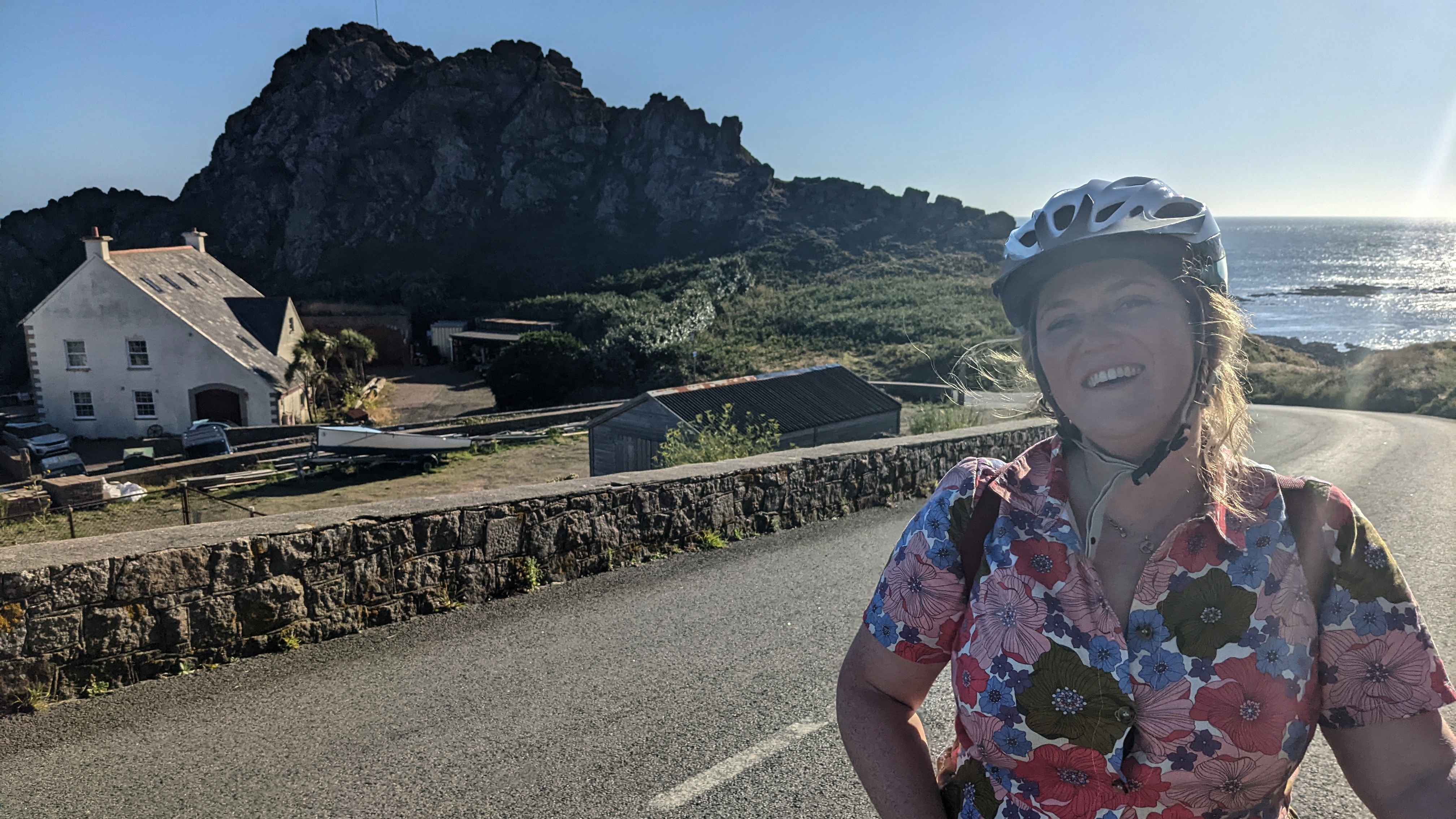

I would love, more than anything, to exist in a state of blissful ignorance when it comes to cycling after dark.
Men in their head torches seem to have it, and I am truly happy for them - but it is a privilege that too often goes unnoticed.
It’s a privilege not to be aware of your own mortality, when all you want to do is cycle home from work in winter, to the pub, or to a friend's house. Or even just because you fancy it.
Women had that privilege, and their basic right to autonomy, removed from them the moment they were born. We live in a constant state of fear due to prescribed gender stereotypes and the consequences of simply existing as our sex - a state of being that we’ve had no say in shouldering.
It’s a sad reality that I, a 31-year-old woman, don't leave my home after dark. Not if I don't have to - and certainly not on my own.
What does that honestly tell you about the safety of women today? That in 2024, I am aware of my own mortality every time I leave the house. That I am too afraid to even take the bins out, never mind get on my bike, when it's dark.
So, to hear that councils in their droves are turning off street lights in efforts to plug holes in their budgets is devastating for female cyclists, like me.
Get The Leadout Newsletter
The latest race content, interviews, features, reviews and expert buying guides, direct to your inbox!
Councils dimming lights
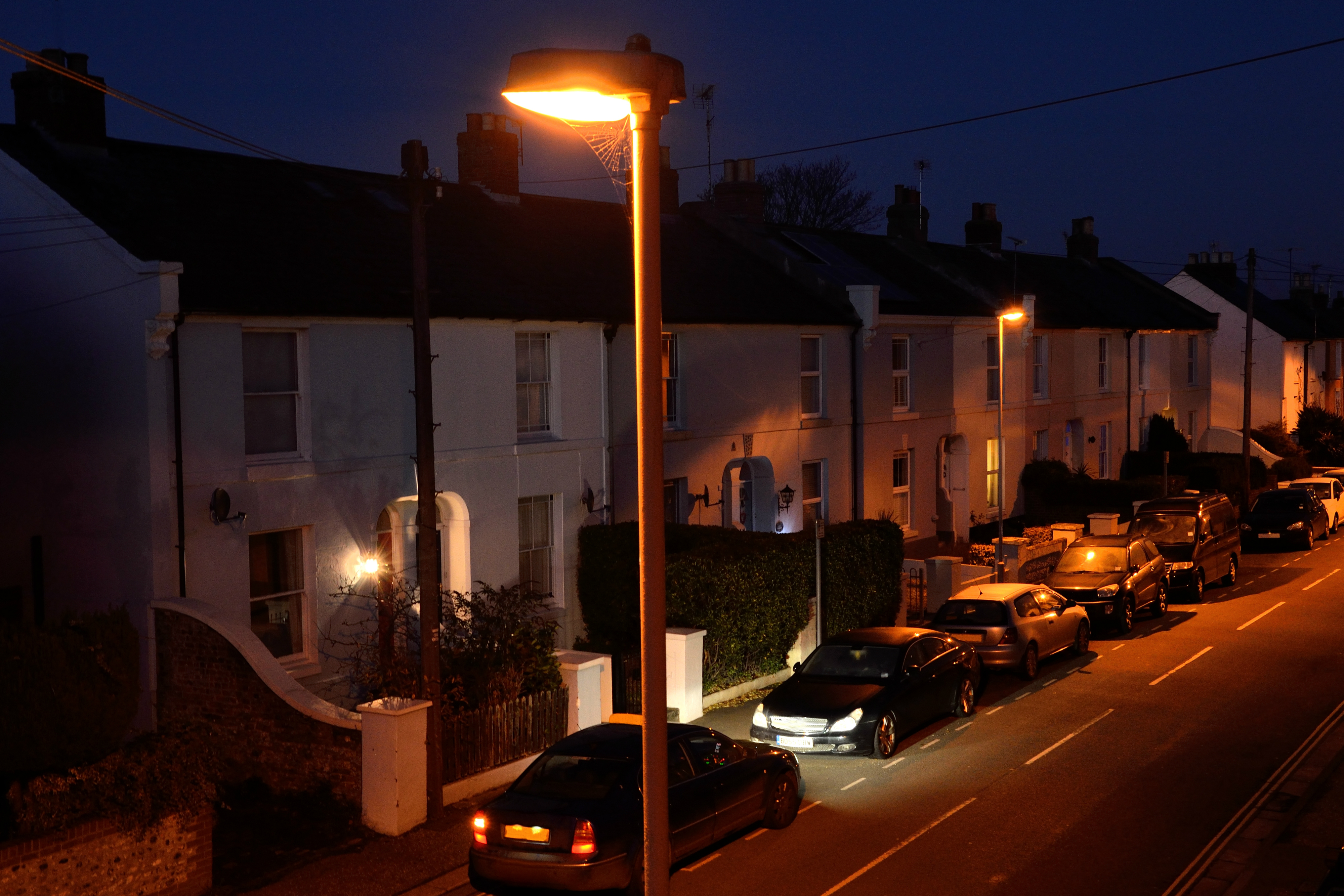
Over the last 15 years, most councils in England and Wales have saved millions of pounds by gradually dimming or turning off streetlights. Now, these councils - with more joining them - are taking these cost-cutting measures one step further by plunging more streets into darkness.
Councils are increasing cuts to street lights, and extending hours of darkness for the public - and it’s a terrifying prospect.
I, for one, have felt afraid to cycle after dark. I’ve taken the longer, more well-lit route home more times than I can count - even when I’ve been utterly exhausted. It’s just not worth the risk.
I’m not naive enough to think that streetlights stop me from being harassed, abused or assaulted. I’ve seen women on bikes chased, groped, and leered at during the day - never mind at night.
According to a recent report from the London Cycling Campaign, nine out of 10 women who ride their bikes in London have experienced abuse. A huge 63% of those surveyed experienced sexual harassment, physical threats, and physical and sexual assaults at least once a month. As a result, over one in five admitted that it’d made them give up cycling - some for good.
So, yes - streetlights are merely a small intervention into women’s security in public, but they can and do make me feel slightly safer. I live in the hope that a well-lit cycle path home will help me, a witness or CCTV clearly see the face of my attacker to give as evidence in a trial.
Except, I worry how this will change for me even further as lights start to dim, or go off in efforts to save money - not my wellbeing. Research shows that people change their behaviour when they’re scared in attempts to avoid the source of the fear itself, so it’s clear that cutting streetlights could impact the attitudes of female cyclists like me worldwide.
Yes, I can understand - truly - how much money this will save in a cost-of-living, post-pandemic riddled world. Times are harder than ever. But this profit for councils will come at a cost - and it's at the cost of women, once again. At a further cost of their freedom, their autonomy and their personal safety.
Since 2008, Norfolk County Council has saved £15 million by dimming street lights and switching off 20,000 streetlights between midnight and 5am. Except, last November, 94% of students at the city’s University of East Anglia said they would feel safer if street lights were left on later - launching a petition to stop further cuts.
According to a report published in November 2023 by Lime, less than one in five women (19%) feel safe cycling alone at night. Safety is the biggest concern that prevents women from cycling, with the main deterrent being poorly lit roads. Over half of all women surveyed wanted better streetlights and, unsurprisingly, 100% wanted improvements to personal safety.
As a result, it’s little surprise that stats from the British government show that men made almost three times as many cycling trips than women in 2022.
Women’s safety worldwide is already an afterthought - in everyday life, our public services, and in our government. Conversations about women, with women, need to be had on a very basic level - between friends, family and colleagues on the treatment and perception of our sex.
I dread to think how turning street lights off will engulf the safety of female cyclists even further into darkness, but change starts with us - and with you.
We’ve been fighting our whole lives - join us. It’s time.
Emmie's tips on how to help women
- Did you only just learn that women like me are too scared to go cycling at night? Tell someone else about it. Spread the word, share this story, and spark a conversation.
- Call out bad behaviour. Whether in public (and it’s safe enough for you to do so), at work or even between friends, call it out - it could be leering, catcalls, or inappropriate language. If you see or hear it, call it out - it’s that simple. Change starts with disrupting the norm, and bad behaviour isn’t normal.
- Take time to educate yourself on what matters. Inform yourself of initiatives and campaigns from This Girl Can, British Cycling, Sustrans and more - getting involved, if you can.
- Talk to, and listen to women. Ask your female friends, colleagues and relatives questions about what they want to see change, and how you can help them personally.
- Email your MP - ask them what they’re doing to help women today. Email councils that are turning off streetlights and ask how they’re channeling money saved from doing so into women’s safety. And if not - why.

Thank you for reading 20 articles this month* Join now for unlimited access
Enjoy your first month for just £1 / $1 / €1
*Read 5 free articles per month without a subscription

Join now for unlimited access
Try first month for just £1 / $1 / €1

Emmie Harrison-West is a freelance journalist, editor and award-winning beer writer. You can find her cursing Edinburgh's cycle lanes on the way to the pub, or as @emmieehw on X.
-
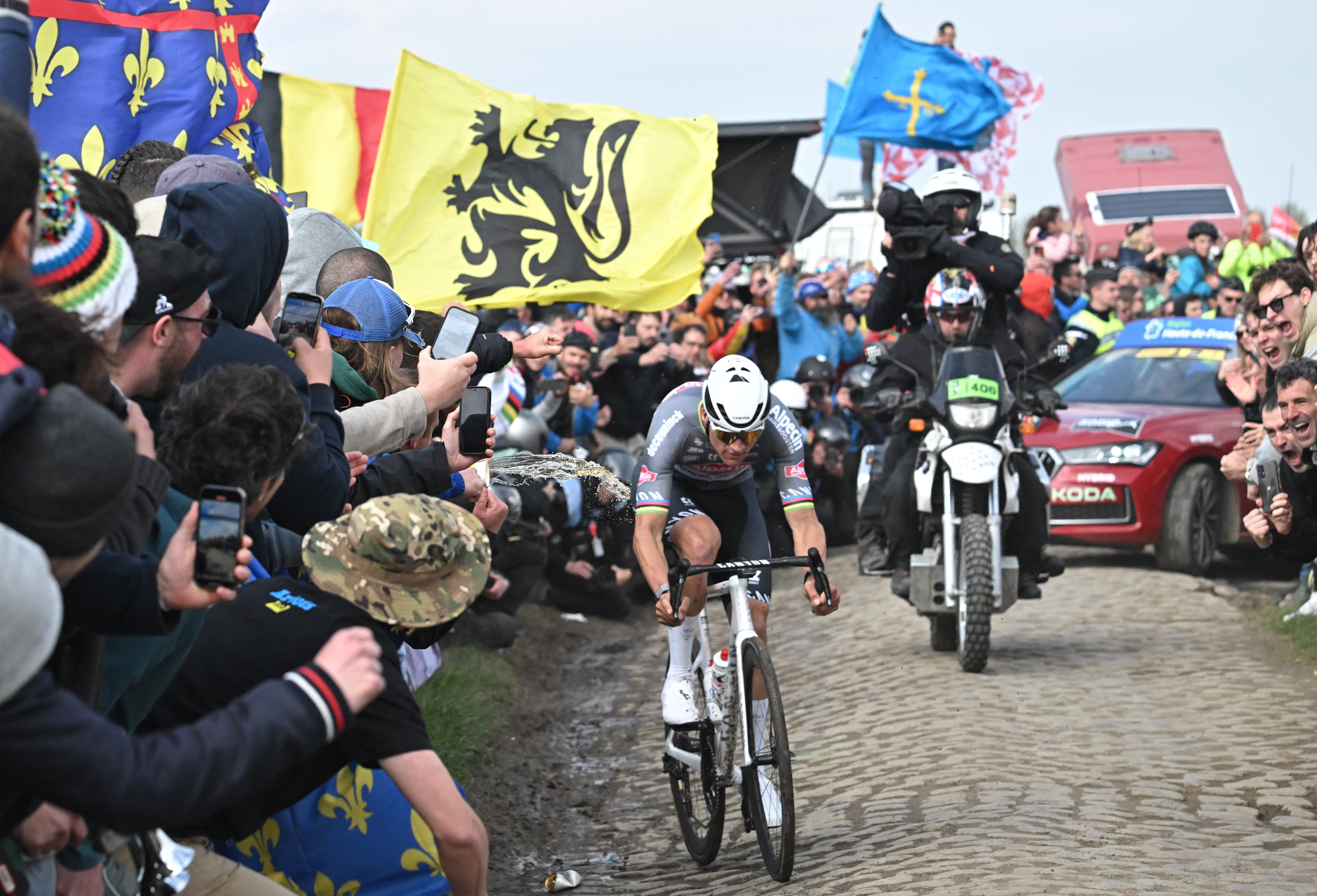 'It was like a stone hitting my face' - Mathieu van der Poel calls for 'legal action' after bottle incident at Paris-Roubaix
'It was like a stone hitting my face' - Mathieu van der Poel calls for 'legal action' after bottle incident at Paris-RoubaixThe winner was hit by a bottle in the face on Templeuve, sector 8b
By Adam Becket Published
-
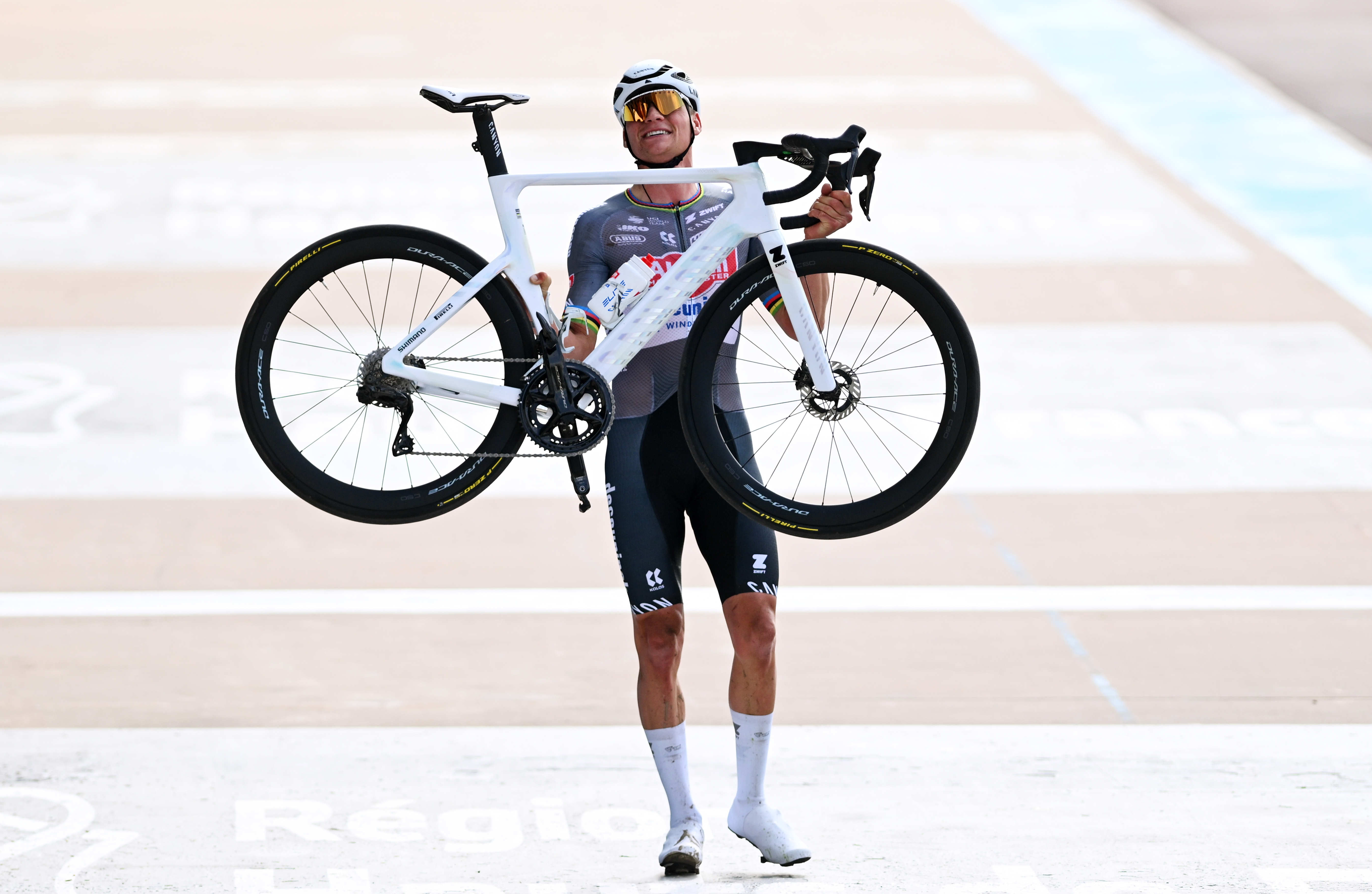 Mathieu van der Poel secures Paris-Roubaix hat-trick after epic duel with Tadej Pogačar
Mathieu van der Poel secures Paris-Roubaix hat-trick after epic duel with Tadej PogačarDutchman takes his third win in a row after Pogačar crashes on the cobbles, while Mads Pedersen finishes third
By Peter Cossins Published
-
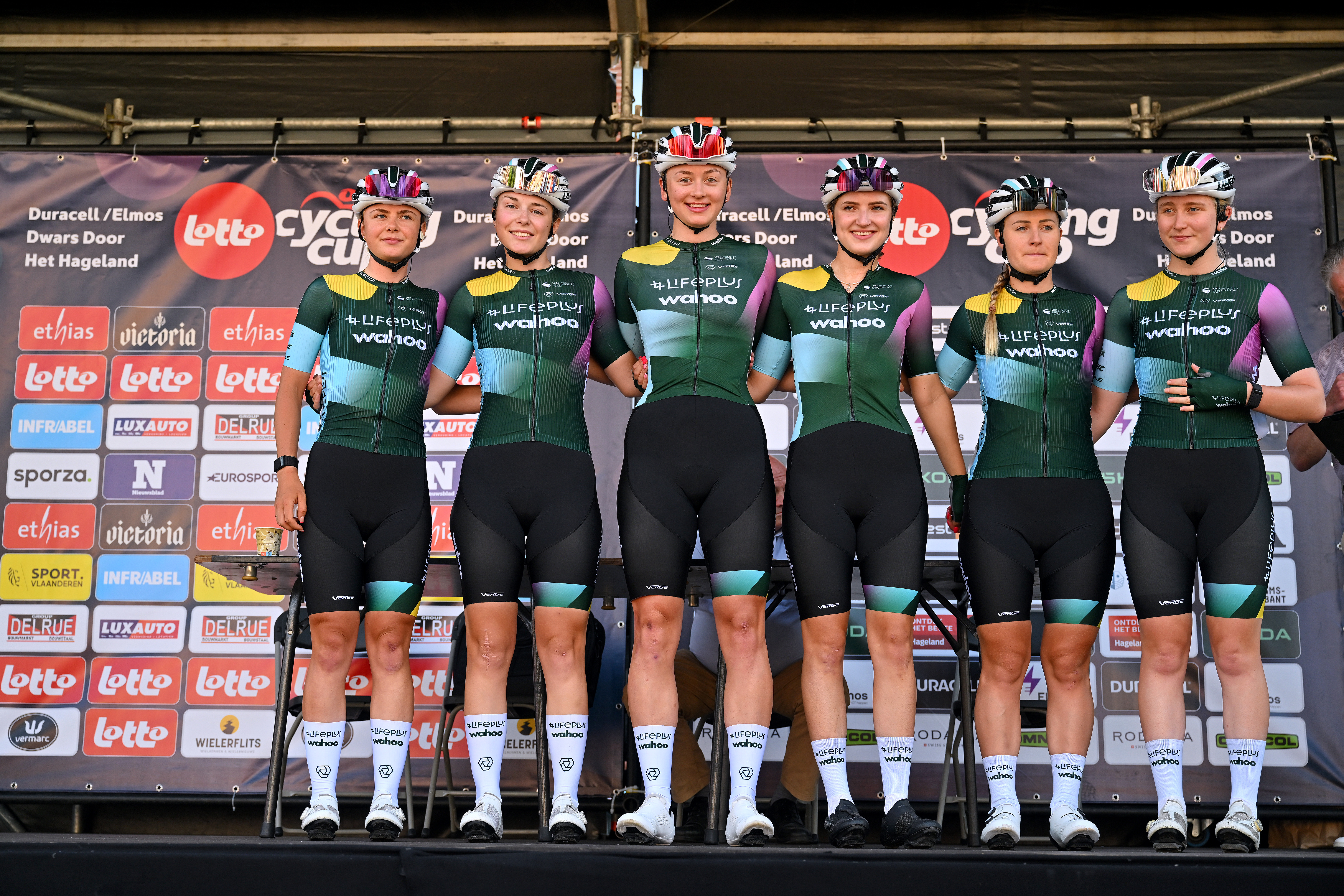 25-year-old pro quits over low pay: 'I still live with my parents'
25-year-old pro quits over low pay: 'I still live with my parents'Typhaine Laurance says she can't make a living from cycling, and is going to seek a new career
By Tom Davidson Published
-
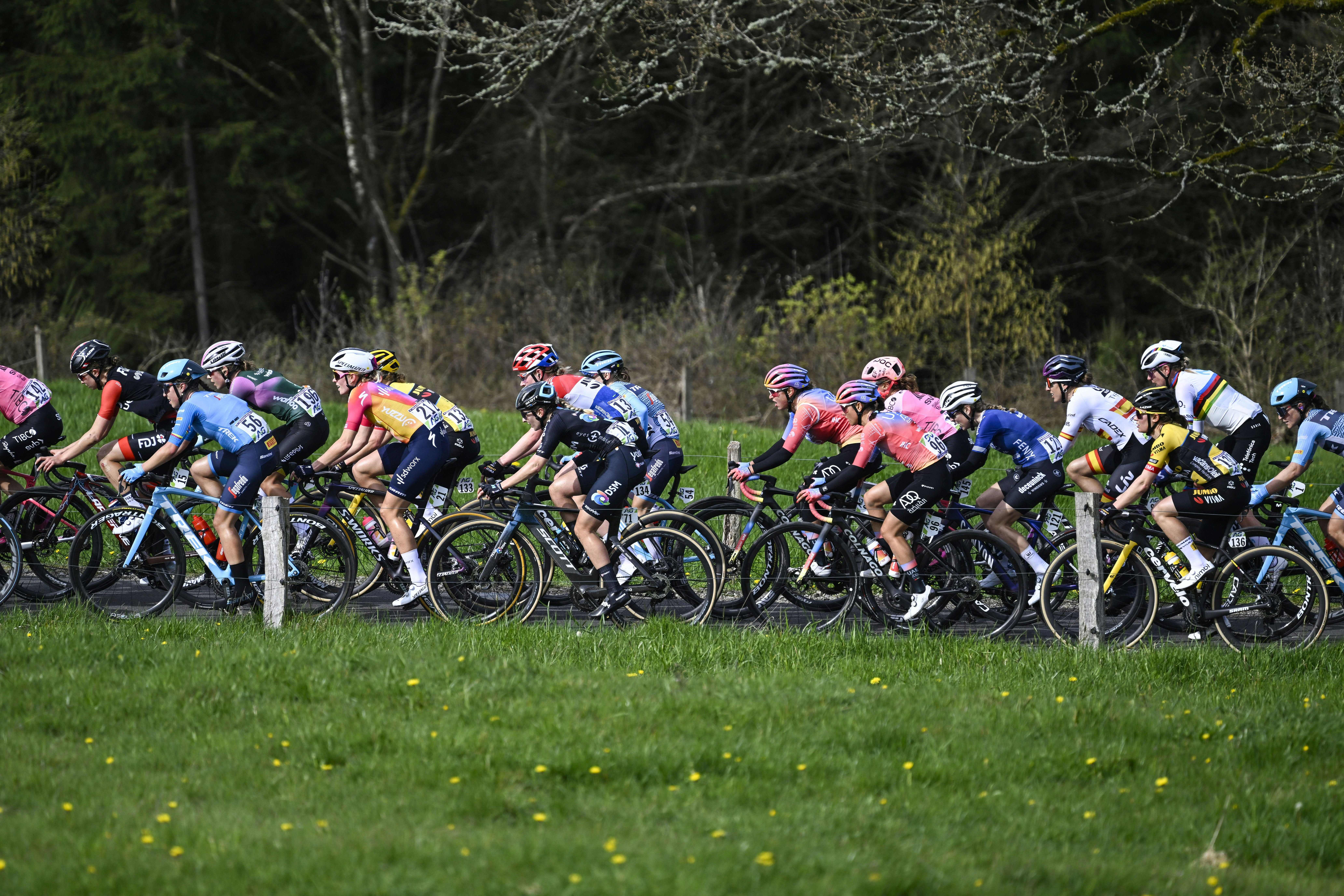 'Lack of judgement': Tour des Pyrénées organiser doubles down on women's peloton criticism
'Lack of judgement': Tour des Pyrénées organiser doubles down on women's peloton criticism‘We run the risk that there will no longer be women’s races in France,’ says event organiser
By Tom Davidson Published
-
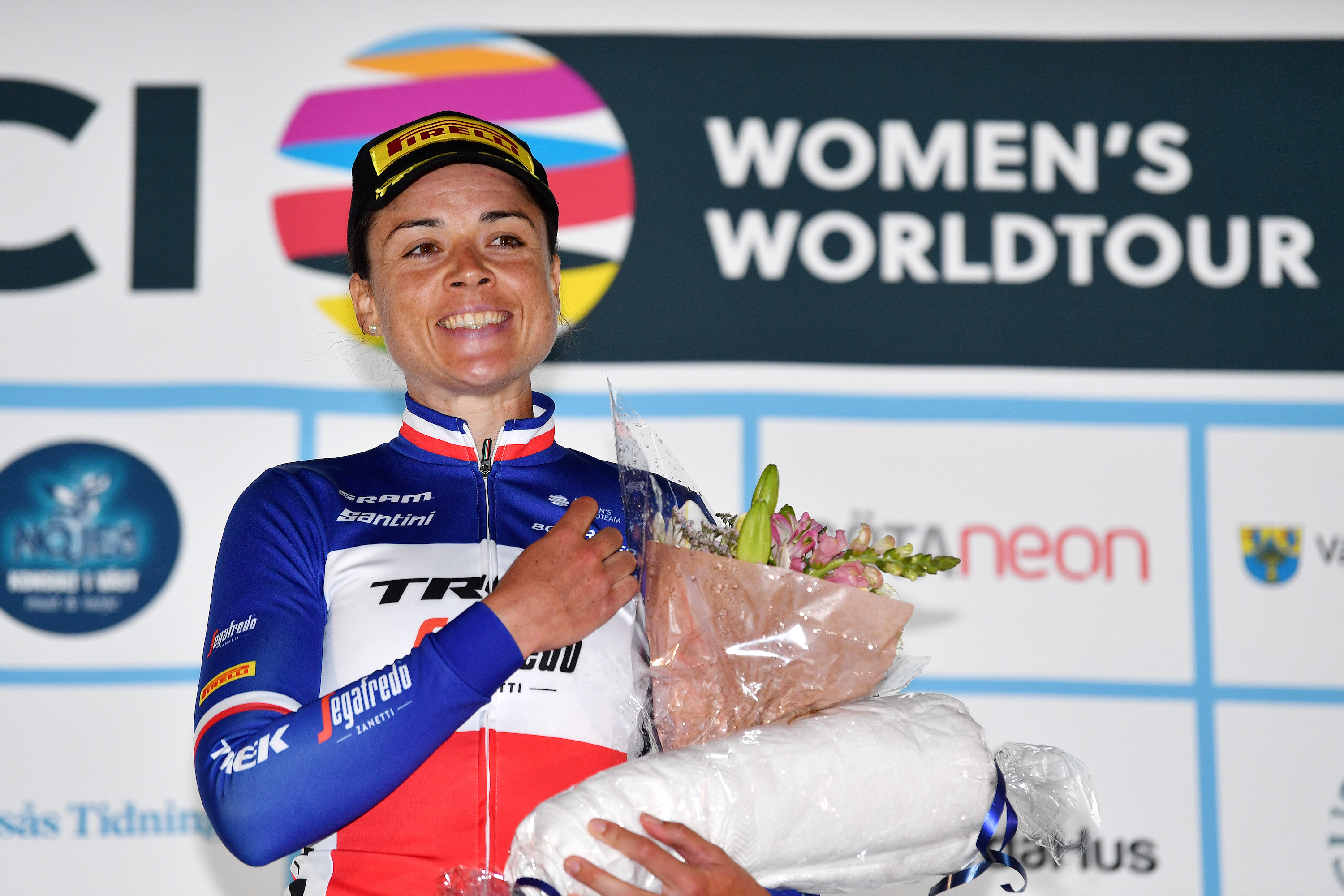 Will a third team transfer in a year be the charm for Audrey Cordon-Ragot?
Will a third team transfer in a year be the charm for Audrey Cordon-Ragot?The French champion will make her debut with Human Powered Health, her third team of 2023, at Paris-Roubaix
By Anne-Marije Rook Published